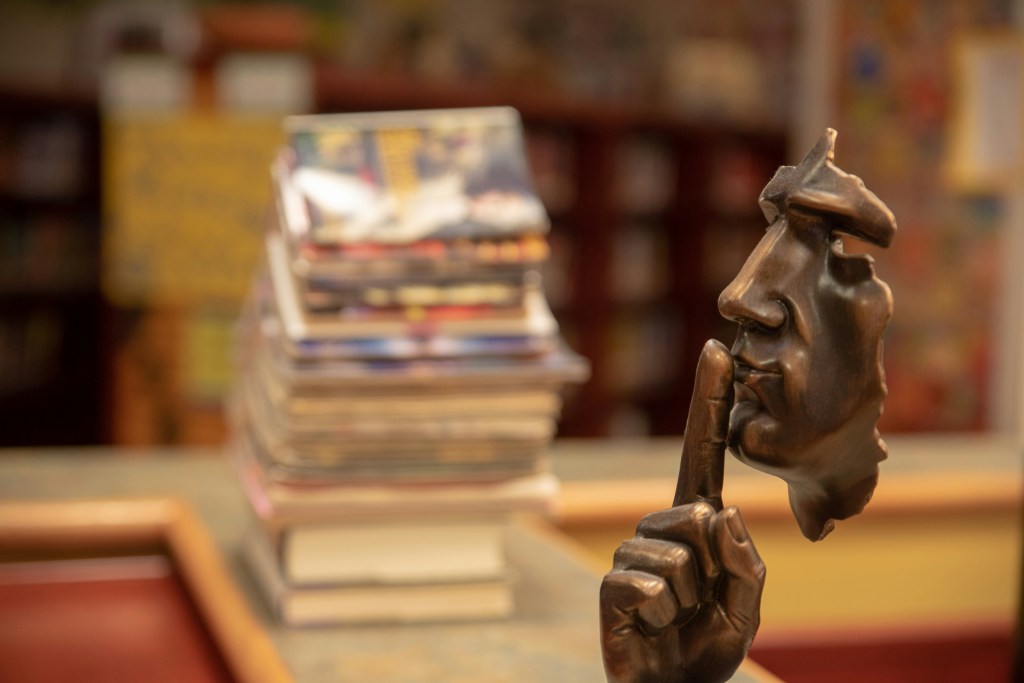
Photo by Glenn Carstens Peters on Unsplash
Yesterday when I was at sports physio in our local health centre, I looked up from doing some squats to see an older man opposite me who for a moment or two, reminded me of my Uncle Pete. The resemblance in my mind didn’t last long but it triggered a whole cascade of memories.
The words ‘my Uncle Pete’ of course will mean very little to most who will read this. Yet indulge me for a few short paragraphs…

Had he still been living, Uncle Pete would have turned 96 next month. He was born in 1928 in the seaside town of Ilfracombe on the north Devon coast in south west England. Growing up, I remember him as a quiet man, having a good sense of humour and a love of jazz music. His career was as a journalist, in particular I recollect for the Western Morning News. Being a writer was the reason I chose the photo at the top(though Uncle Pete retired long before laptops would have been part of the newsroom).
For many years, he took a holiday to the same resort in Spain, sending a postcard to our parents with some kind of witty comment.
He was an Arsenal fan – I guess I can forgive him for that!
The last time I saw him alive was when he was living in Acton, London. Helen and I were up visiting Helen’s brother and realised that Uncle Pete was only a few streets away. I had not seen him for quite some years, so off we went to visit.
It was a bit of a challenge to convince his formidable landlady to let us into the building. On ascending the stairs and ringing the bell to his rooms, we waited. Uncle Pete opened the door, took one look at me and used some rather colourful language in exclamation! It still makes me smile every time I think of it.
Uncle Pete passed away on June 1st 2001. Joining with family, some friends and colleagues, I had the privilege to lead his funeral service later that month in Mortlake.
Searching online has so far yielded nothing for me about Uncle Pete’s life. It is as if from a digital point of view that he never existed. Yet he did and at least now, I can give mention of him in this thin nugget of internet text.
Is that the only reason I write the above – to honour that Peter Lewis Vince, born 5th June 1928 was on this planet?
No, but it is part of it.
For us all, there are all kinds of fond memories of people and experiences that are in our heads but probably many of these will be ‘lost’ once we ourselves pass away. Mmm, is that sounding a bit morbid? I don’t mean it to be. So let me try and bring out some points of reflection…
Express gratitude to those whom you are thankful for, whilst they are still alive. Loving words spoken at a funeral are an important part of remembering and grieving of course, I am not wishing to take away from that or be insensitive. Yet who might we express thanks to even in these coming weeks?
Re-connect? Is there someone you have fallen out of contact with – a family member or friend that perhaps you are stirred to reach out to? For me, it was someone from University days, of whom thankfully an online search did yield results.
Are there things you want to record in some way, to pass onto others for the future? If so, how might you like to do this?
What kind of footprint will linger and remain from our lives? In a world facing many challenges, what are we living for?
We will all leave some kind of legacy – what will it be? I am not meaning how easily will we be found in a digital hunt or even necessarily about acolades or achievements. ‘Leaving a legacy’ – what comes to your mind with such words?
One day I believe that I will come before my Creator and look back over my life. Maybe to some that seems a crazy idea, to others perhaps rather intimidating as a thought. Due to God’s grace found in Christ, it is not something that I fear (though I do not wish to imply here some great ‘saintliness’ on my own part).
As I have thought about Uncle Pete, it has stirred all kinds of thoughts. Thank you for bearing with me as I have shared some of these. I leave you with this pic below from 1976 – Uncle Pete is on the very right (and I am the other one in a pair of shorts!)

Andy












